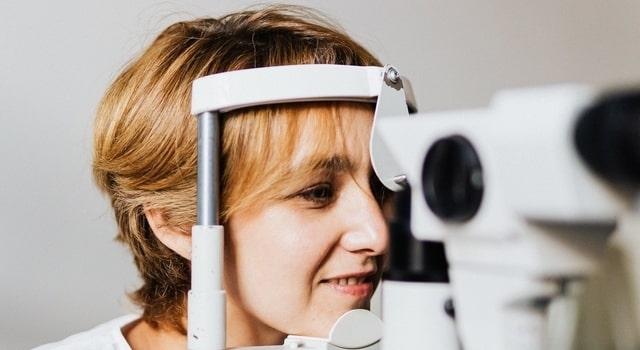
Are you wondering how often you should get your eyes checked? It’s a common question and an important one. Comprehensive eye exams are key to maintaining clear vision and healthy eyes, but the recommended frequency depends on age, lifestyle, and health. We’re here to help you figure out the best timeline for your eye exams so you can stay on top of your eye health and see the world clearly.
Eye Exam Frequency by Age
The timeline for eye exams changes throughout life. Here’s what you need to know for each stage:
Children (Ages 6 months to 18 years)
- First Exam: Around six months of age to check for basic eye health and development
- Follow-Up Exams: We recommend another exam around age three and then before starting school (around age 5 or 6)
- School Age & Teens: Once school starts, kids should have an eye exam every 1-2 years, even if they don’t need glasses. A comprehensive eye exam can catch vision changes that impact learning and development
Adults (Ages 18 to 60)
- Every 2 Years: Most adults should have a comprehensive eye exam every 1-2 years to monitor for vision changes, update prescriptions, and check for early signs of eye conditions
- More Often If You Notice Symptoms: If you experience blurry vision, headaches, or eye strain, it’s time to request an eye exam sooner rather than later
Seniors (Ages 60 and Up)
- Annually: After age 60, comprehensive eye exams are recommended every year. As we age, we’re at a higher risk for eye diseases like cataracts, glaucoma, and macular degeneration, which are best caught early through regular check-ups
Special Conditions That Need More Frequent Eye Exams
Some individuals may need to have their eyes checked more often than the general guidelines suggest. Here are some examples:
Diabetes
- Every Year or More Frequently: People with diabetes are at higher risk for diabetic retinopathy, a condition that can lead to vision loss. Annual eye exams are a must, and sometimes, you will need more frequent visits based on your eye health and blood sugar control.
Family History of Eye Diseases
- Every Year: We highly recommend annual comprehensive eye exams if you have a family history of eye conditions like glaucoma or macular degeneration. Early detection of these conditions can make all the difference in preserving vision.
Contact Lens Wearers
- Annually: Contact lens wearers need regular eye exams to ensure a proper fit, check for any changes in vision, and assess eye health. A yearly check-up is essential even if you’re comfortable with your lenses.
Those with High Myopia (Nearsightedness)
- Every Year: Individuals with high levels of nearsightedness are at a higher risk for retinal detachment and other eye conditions, making yearly eye exams crucial for monitoring any changes.
Why Regular Eye Exams Matter
Comprehensive eye exams are about more than just checking your prescription—they’re key to catching eye health issues early. Regular exams help identify conditions that might not have symptoms yet, such as glaucoma or macular degeneration and allow timely treatment to preserve your vision. Plus, clear vision means you can enjoy life comfortably, whether you're driving, working, or spending time outdoors.
Request Your Eye Exam at Boise Mountain Eyecare
Ready for your next eye check-up? Our team is here to provide thorough, personalized eye care for every stage of life. No matter your age or eye health needs, our team will help you keep your vision sharp and your eyes healthy. Request your comprehensive eye exam today and see the world in focus.
